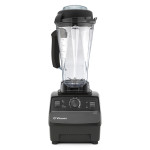4 Nutrition Tips for the Injured Athlete
By Chris Newport, Nutritionist and Head Coach
No one likes being broken, especially athletes. But when we are broken, this is how we feel, right?!? Have no fear, we have 4 nutrition tips for the injured athlete.

Injuries and Nutrition
I get it. As an athlete, I’ve had chronic runner’s knee, contusions and abrasions from bike wrecks, a broken bone, a sprained neck, and the list goes on (can someone knock on wood so I don’t have to add to that list? Thanks!). As a coach, I’ve worked with athletes through acute and chronic injuries and surgeries. Unfortunately, if you’re active, injuries are practically inevitable. However, playing the sport(s) you love is a whole lot better than sitting on the couch (and a whole lot better for your sanity!).
Some injuries are out of our control. Others are well within our control (like overtraining…HEY…YOU! Get a COACH!). But did you know that some injuries can actually be CAUSED by poor nutrition? And some injuries can be healed more effectively with good nutrition. So why not get and stay in the game longer by getting a good nutrition plan?
For acute injuries (like a ligament sprain, muscle tear or broken bone) or recent surgery, when you’re limited in the amount of activity you can do (if at all), here are some tips to keep in mind:
Focus on Real, Nutrient Dense Foods
First and foremost, real food heals. It’s far more powerful than we even begin to give credit. Getting your veggies, fruits, healthy fats (ie olives, avocados, nuts and seeds), and quality proteins (ie chicken, wild salmon, eggs) is important, since that’s what you’re body is designed to eat. In particular, focus on these foods to get specific nutrients essential to the healing process:
- Citrus fruits, strawberries, tomatoes, peppers, kiwis and melons are great sources of vitamin C, which aids in tissue repair, collagen formation and immune function.
- Oysters, crab, scallops, cheese, wild rice, pumpkin seeds, almonds, and grass-fed beef are great sources of zinc, another important nutrient for immune function, athletic strength, and elevating mood.
- Liver, kale, sweet potatoes, pumpkin, carrots, spinach, turnip greens and bell peppers (think orange!) are excellent sources of vitamin A, another nutrient that aids in cell growth and development, which is critical for healing injuries.
- Organic milk and yogurt, fortified non-dairy milks, and mushrooms are great sources of vitamin D, which is essential for calcium absorption, bone health and performance. Additionally, exposing your skin to moderate amounts of sunlight will provide the recommended amounts of vitamin D needed. In my practice, the majority of people need to supplement. The standard range for vitamin D is ~32-100ng/mL. That’s a pretty wide range, right? We like to see athletes at 50-80ng/mL. How do you know what your vitamin D is? Get tested! Then ask to get your results. We’ve found that ~2,000IU of vitamin D3 will keep someone at their current level. So it’s important to get the right dose. Our favorite is liquid (1 drop = 1000IU) that can be dropped straight on your tongue.
- Protein…in the the right amounts. It’s not necessary to go overboard, but to support muscle growth, avoid excess muscle atrophy (you have to MOVE the muscle to get it to grow, which may be impossible if you’re injured), and to heal properly, be sure to get your protein. Not sure how much you need? Contact us!
Portion Control
Athletes like to eat. And why shouldn’t they? They burn through energy like wildfire. And food is energy. So if you’re energy output (ie exercise) drops dramatically, then your energy input (ie food) needs to decrease as well. But it’s reeeeeeally hard to get off that wagon of “I worked so hard that I earned every last ounce of this cake/burrito/burger (and more).” So while it’s ok to have your cake and eat it too (moderation!), it’s wise to eat a little less cake (if at all) unless you plan on buying another (larger) wardrobe. Besides, empty calories may even hinder the recovery process. All those engineered products (like sports drinks, gels, etc) can happily stay in their packages while you get your nutrition for recovery and healing from whole foods. In fact, this is the perfect time to hone your meal planning and cooking skills!
Fight Inflammation
Inflammation is the body’s natural response to injury. It’s supposed to happen for proper healing. It may last for a couple hours or several days, depending on the injury (site). However, excessive inflammation delays recovery time. Stay away from processed carbohydrates and added sugars, which will increase inflammation. Eat foods rich in omega-3 fatty acids to help reduce inflammation and speed recovery. Fish like wild salmon, tuna, anchovies and sardines contain the highest amounts of omega-3 fatty acids. Walnuts, chia seeds, and flax seeds are also good sources, but nearly as high as fatty fish. If you can’t get fish in your diet at least 3 times per week, I highly suggest supplementing with a high quality product like our favorites OmegaGenics EPA-DHA 2325 (1 tsp delivers almost 3g!), EPA Ultimate (pill form), or Klean Omega (pill form).
Supplement the Right Way
If you’re willing to temporarily add supplements (rather than high doses of NSAIDs, which certainly have their place but can inhibit the recovery process–on a side note, talk to your healthcare provider about getting a prescription for topical NSAIDs to give your liver some relief), I love Acute Phase that combines curcumin, boswellia, ginger, and vitamin C. All of those can be taken individually too like Curcumin, Boswellia, quercetin, ginger, and Bromelain, Curcumin is the active ingredient in turmeric (powdered or root form), so you can sprinkle it on your eggs, whip up a curry dish or throw it in a smoothie or drink. Quercetin is found in foods like apples and onions, but not to the degree in the supplemental form. Bromelain is found in fresh pineapple, so add that to your plate too.
What nutrition strategies have worked for you to prevent or heal injury?
Many thanks to my awesome intern Sarah Heckler for her help with this blog and SCAN Registered Dietitians Nutrition for the Injured Athlete handout.



